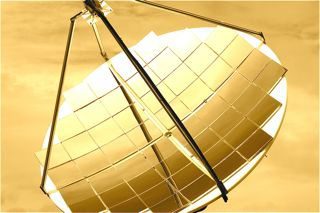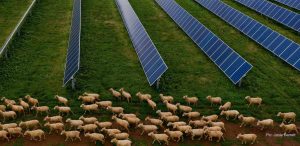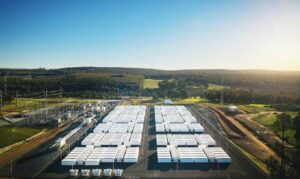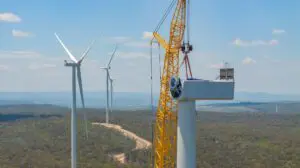The first head of the Clean Energy Finance Corporation, the $10 billion Australian government funded green investment bank, hopes to have a pipeline of projects ready to role by July 1, when the first funds are made available.
Oliver Yates, the former Macquarie Group banker, who once headed that group’s climate change division, told RenewEconomy in an exclusive interview that the CEFC would have up to $2 billion to spend in its first financial year, and he intended to have the first projects ready to go as soon as the CEFC could access those funds.
“I’d be hoping to have a pipeline of transactions identified before then,” Yates said when asked about funds becoming available by July 1.
Those behind the CEFC believe it is critical that the group makes some financing commitments before the next election – which is due within four months of the CEFC opening for business – because the Opposition has vowed to close what it has described as a “clean energy slush fund”. The clean energy industry has, however, been working hard to lobby Opposition front benchers and politicians, to explain the benefits of the CEFC.
Yates said he was confident that the CEFC would endure, even if there were an Opposition victory at the next election. “I know what Mr Abbott has stated and we understand what the Liberal Party policy is, but the country needs a transitional institution such as the CEFC,” Yates said.
“I think the legislation provides a high degree of certainty. And in relation to our role here, I think we will be welcomed by industry and we will be around for a while.”
Yates, who has been involved in renewable, carbon and low emissions technology investments for several years – both in his capacity at Macquarie and in a private role – said it was clear that clean energy was the next big transition that the Australian and the global economy needed to make.
“Sooner or later, investors are going to realize that if they are not investing in clean energy sector then they are making a terrible mistake. We will get to a stage where there will be a tipping point, where investment in clean energy sector will be almost compulsory. It will be those people who aren’t doing who will be the odd one’s out, rather than those people who qre doing it.
“It is a matter of changing the risk. At the moment, people still feel that investing in this sector carries higher risk. I don’t think it will be too long before people turn around and say that the sector I need to be investing in, and the traditional high carbon sector is actually the sector that is going to carry those risks.”
Yates would not be drawn into the type of financing arrangements that the CEFC would deploy, or the specific sectors, saying he needed to recruit a strong investment and legal team, and to consult widely with the industry.
He did, however, not that renewables might make up only half of the projects the CEFC participates in, with the rest coming from energy efficiency and “enabling” technologies such as grids designed to deliver renewables to the market.
You can read the full interview here.







